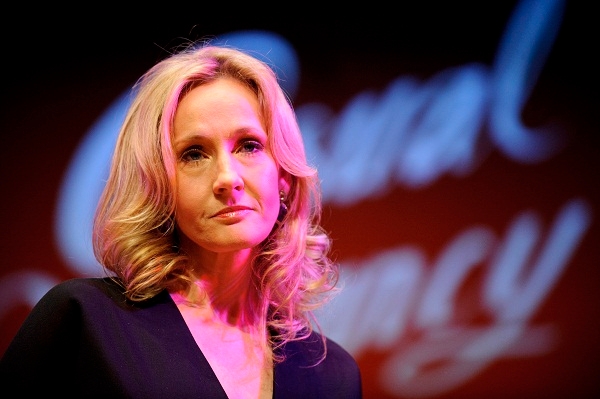Suzanne Collins, author of The Hunger Games, has announced that her next book will be a picture book. Rather than writing a follow-up dystopian adventure for her teenage readers, she has decided to engage with four-year-olds in Year of the Jungle, a story about how her family coped when her father spent a year serving in Vietnam.
Collins is not the only staggeringly successful children’s author who has taken an unexpected step away from her fan base with her writing. Whereas Collins is turning to younger children, J.K. Rowling turned to grown-ups with her recent adult novel about provincial life, The Casual Vacancy.
Many Harry Potter fans were disappointed. While they didn’t expect wizards, magic and Hogwarts, neither did they expect such a grim, miserable novel. Theo Tait wrote in the Guardian, ‘The fan base may find it a bit sour, as it lacks the Harry Potter books’ warmth and charm; all the characters are fairly horrible or suicidally miserable or dead.’ According to David Sexton in the Evening Standard, ‘The problem for Rowling’s legions of fans will be that she has forgotten to include any basic likeability in her characters here or any real suspense as to what will happen.’
The Casual Vacancy did not appeal to Rowling’s Harry Potter fans, just as Year of the Jungle will not appeal to Collins’ Hunger Games fans. But perhaps this is the point. By choosing different audiences, subject matter and tone for their new books, Collins and Rowling are stepping away from what everyone knows them for and asking to be considered in a new light. They are asking for their new books to be assessed on their own merits, rather than being compared to their earlier successes. The problem is that J.K. Rowling is so indelibly associated with the world of Harry Potter that it is impossible to read a novel by her and not expect something of that world – a glimmer of excitement, a flash of the spirit of adventure. The reality is that when you’ve had a success on such a scale as Harry Potter or The Hunger Games, it stays, heavy as an albatross around your neck, impossible to shed by such tricks as changing genre or audience.
One children’s author who seems to have solved this conundrum of what to do next is Alan Garner. While his original books are now children’s classics, this year saw the publication of Boneland, an adult sequel. Garner has evidently deduced that many of his readers have grown up – it’s nearly sixty years since The Moon of Gomrath was first published – but he has also acknowledged the fact that his powerful stories have stayed with them. Instead of abandoning the old characters and ideas, he rejoins them at a later stage in their lives. Fans of The Weirdstone of Brisingamen, now grown-up, can read a novel that is new, adult, and yet still retains an essence of the original.
Perhaps Garner is not unlike Coleridge’s Ancient Mariner and, feeling the weight of the albatross about his neck, knows that he must keep on with the same story – ‘till my ghastly tale is told / This heart within me burns.’ If successful authors are trying to tell a new tale, with new characters and new preoccupations, then perhaps the only way to escape the shadow of their earlier success is to write it under a pseudonym. I wonder what everyone would have made of The Casual Vacancy then.
Emily Rhodes works for an independent bookshop in London. She blogs at Emily Books and tweets @EmilyBooksBlog.






Comments